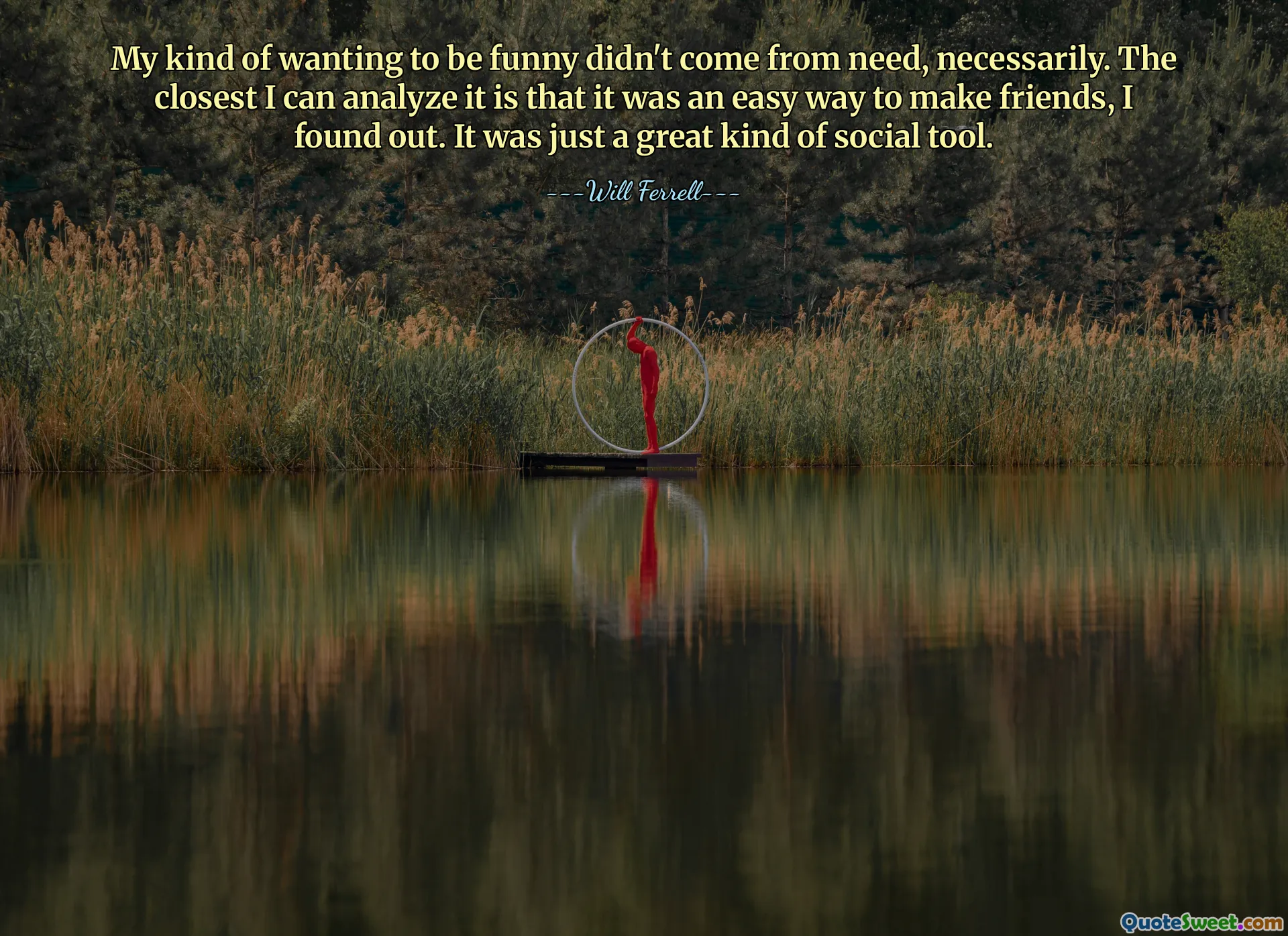
My kind of wanting to be funny didn't come from need, necessarily. The closest I can analyze it is that it was an easy way to make friends, I found out. It was just a great kind of social tool.
The quote highlights the intrinsic motivation behind the desire to be funny, emphasizing that humor can serve as a powerful social bridge rather than a mere response to necessity. When someone seeks to be humorous not out of obligation but as a natural means to connect, it reflects a deep understanding of the social functions of comedy. Humor often acts as a social lubricant, easing interactions, creating bonds, and fostering a sense of camaraderie. The speaker's recognition that humor was an 'easy way to make friends' underscores its role as an accessible and effective form of social signaling. This perspective suggests that humor isn't just a light-hearted activity but also a strategic and meaningful tool for social integration. It serves as a reminder that social skills like humor help in building relationships and creating shared experiences. Moreover, the quote invites us to reflect on our own motivations for humor—whether it stems from necessity, enjoyment, or a desire for social acceptance. Understanding that humor can be both a natural expression and a social tool broadens our appreciation for the value it provides in human interactions. Overall, this insight demonstrates that humor's power lies not just in laughter but in its capacity to forge connections, dissolve barriers, and cultivate friendships effortlessly.











